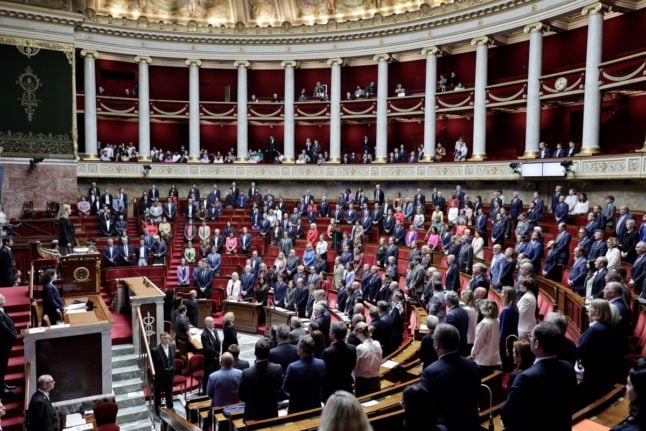A foreign ministry statement said France “welcomed” the release, saying she had been “unjustly detained” in Tehran’s Evin prison.
A source close to her, who asked not to be named, earlier told AFP that Adelkhah had been freed from Evin but added it was not immediately clear if she would be able to leave her home and return to France.
The foreign ministry statement added: “It is essential that Mrs Fariba Adelkhah can regain all of her freedoms, including that of returning to France if she wishes.”
Up until Adelkhah’s release, seven French citizens were being held by Iran, according to the French foreign ministry.
They are among two dozen foreign nationals campaigners say Iran has jailed in a strategy of hostage-taking to extract concessions from the West.
Last month Foreign Minister Catherine Colonna had demanded the “immediate release of the seven French hostages arbitrarily detained” by Tehran in telephone talks with her Iranian counterpart Hossein Amir-Abdollahian.
Iran had erupted into protests in September, following the death in custody of 22-year-old Mahsa Amini after she was arrested for allegedly violating the Islamic republic’s strict dress rules.
The ensuing crackdown further limited diplomatic contacts between Iran and the West and the scope for agreeing releases of prisoners.
Releases from Evin
Adelkhah’s release came a day after Iran freed a total of seven women from Even prison.
They included campaigner Saba Kordafshari, held since 2019 after she campaigned against the obligatory hijab for women, and prominent photographer.
Alieh Motalebzadeh whose latest stint in jail began in April last year.
On Friday, Iran also released Farhad Meysami, a doctor and human rights campaigner who had been refusing food for several weeks over the authorities’ response to the protests, his lawyer said.
Images of his emaciated body while on hunger strike had caused international concern.
Motalebzadeh wrote on Twitter that Adelkhah was among half a dozen more prisoners released on Friday.
A picture also circulated on social media of a smiling Adelkhah in a car apparently being driven away from prison.
It was not clear if the releases were linked to an announcement by the office of supreme leader Ayatollah Ali Khamenei that he had agreed to pardon a large number of convicts, including those detained over the protests.
Rights activists have urged scepticism over the announcements, noting that many prominent figures remain in jail and activists continue to be arrested.
A specialist in Shiite Islam and a research director at Sciences Po university in Paris, Adelkhah was arrested in June 2019 along with her French colleague and partner Roland Marchal.
Marchal was released in March 2020 in an apparent prisoner swap after France released Iranian engineer Jallal Rohollahnejad, who faced extradition to the United States over accusations he had violated US sanctions against Iran.
Adelkhah was sentenced in May 2020 to five years in prison for conspiring against national security, accusations her supporters have always denounced as absurd.
She was allowed home in Tehran in October 2020 with an electronic bracelet but was then returned to jail on January 2022.



 Please whitelist us to continue reading.
Please whitelist us to continue reading.
Member comments